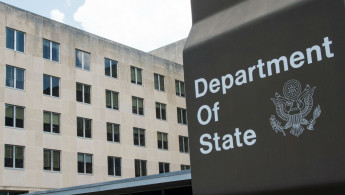US state department highlights worsening human rights in Iraq, Kurdistan region
In its annual global report on human rights practices for 2023, the United States State Department has raised concerns over worsening human rights conditions in Iraq and the Iraqi Kurdistan Region (IKR). The report highlights increased restrictions on fundamental freedoms and civic space imposed by authorities in Erbil and Baghdad compared to the previous year.
The document examines human rights in Iraq and Kurdistan, citing misconduct by security forces and violations against journalists and activists. It highlights extrajudicial killings, disappearances, torture, harsh prison conditions, arbitrary arrests, and media restrictions. While some government efforts are acknowledged, challenges persist.
Both the federal government and Kurdistan Regional Government (KRG) forces are reported to have cracked down on dissenting voices, with security forces implicated in the arrest and detention of protesters critical of central and regional authorities.
"Security Forces, mostly those under the Ministry of Interior, within the NSS, or from the PMF, in addition to KRG forces (primarily Asayish), arrested and detained protesters and activists critical of the central government and the KRG, respectively, according to statements by government officials, NGO representatives, and press reports," reads the report. "On February 13, the Iraqi Human Rights Observatory stated authorities arrested social media users arbitrarily for posting "low-quality content." Authorities reportedly treated these detainees as if they were involved in "terrorist" acts that inflicted damages on public institutions or led to the loss of public funds."
It also added, "Throughout the country, there were reports of beatings, detentions, and death threats against media workers, particularly toward journalists working for opposition-affiliated and nonpartisan outlets."
Regarding press freedom in Iraq and the Kurdistan region, the report stresses that instances of threats and attacks against journalists persisted in Iraq and Kurdistan, with reports indicating 345 cases of abuses documented by the Press Freedom Advocacy Association by May, mainly concentrated in Baghdad and Erbil.
"Government forces occasionally prevented journalists from reporting, citing security reasons. Some media organisations reported arrests and harassment of journalists and government efforts to prevent them from covering politically sensitive topics, including security matters, corruption, and government failure to provide adequate services."
Reporters Without Borders (RSF) noted close to 20 journalist arrests in the Kurdistan Region (IKR) over the year. The Erbil-based Organization of Reporters for Rights and Development reported 49 violations against 99 journalists and social media bloggers in the first half of the year alone. RSF emphasised a significant rise in press abuses in the KRG, with journalists facing arbitrary arrests and additional charges prolonging their detention.
"Political parties in the IKR, namely the PUK and the KDP, prioritised access to the outlets they or their members owned or controlled. IKR-based outlets without strong political or financial backers reported difficulty accessing information or reporting venues.
The report also criticised the judicial system, noting trials falling short of international standards and reliance on coerced confessions. It raised concerns over press freedom, citing cases of journalist imprisonment and arrest over critical commentary.
The Iraqi federal government and the KRG faced criticism for oversight and censorship, leading to the closure of media outlets, reporting restrictions, and denial of public information access. In some cases, KRG courts applied the Iraqi criminal code instead of local law, offering less protection for freedom of expression and allowing journalist detention.
Despite passing a freedom of information law in 2013, the KRG had not implemented it by the end of the year. Journalists and advocates accused the judiciary of bias in press freedom cases and lawsuits against the KRG. In January, an Erbil appeals court dismissed lawsuits against the KRG prime minister and IKR president for withholding public budget information.
Violations against protests, such as what occurred in Kirkuk when Kurdish residents protested against a blockade, resulted in casualties and arrests. Despite challenges, the report acknowledges efforts by the KRG to improve human rights training among security forces.
The report underscores the need for sustained efforts to address human rights challenges in Iraq and the Kurdistan region, urging authorities to uphold international standards and respect fundamental freedoms.




 Follow the Middle East's top stories in English at The New Arab on Google News
Follow the Middle East's top stories in English at The New Arab on Google News

![A group of Palestinians, foreign and Israeli activists gather to participated in an olive picking event on the land in the town of Battir, which is under threat of confiscation by Israel in Bethlehem, occupied West Bank on 8 November 2024. [Getty]](/sites/default/files/styles/image_330x185/public/2182930803.jpeg?h=199d8c1f&itok=__0LgGsa)
